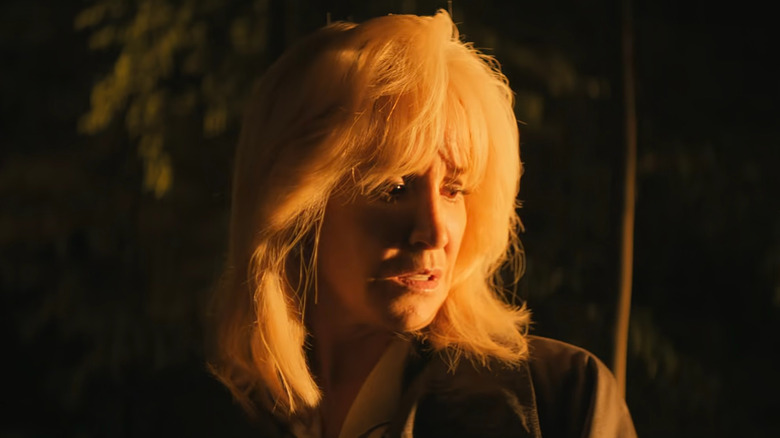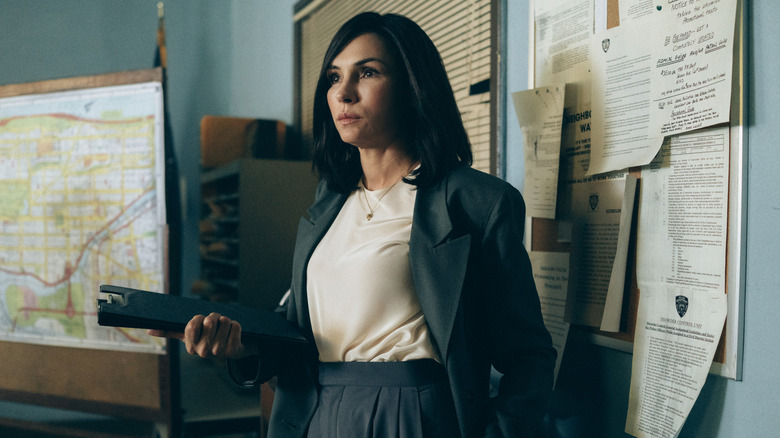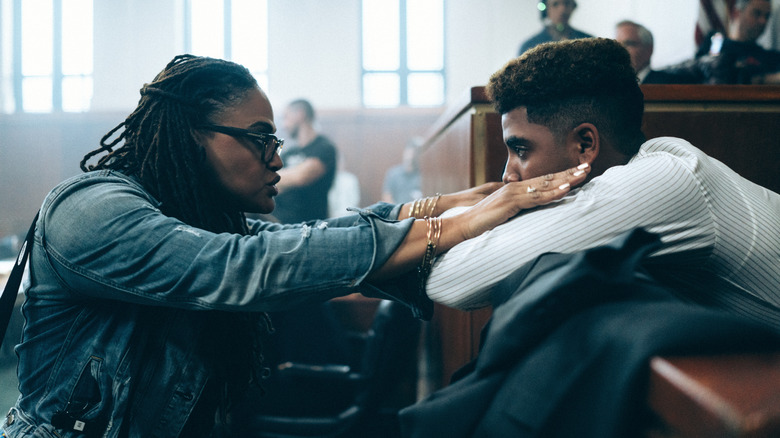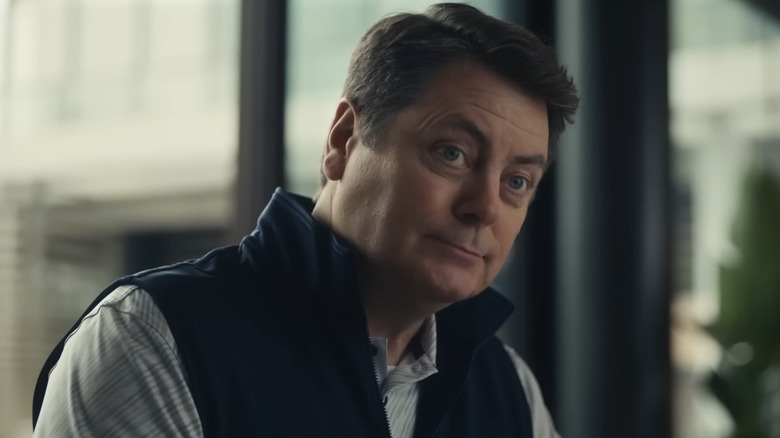A Netflix Lawsuit Could Change One Category For Good
In a decision handed down by U.S. District Judge P. Kevin Castel of the Southern District of New York, Netflix was denied summary judgment in a libel lawsuit — a rare development for the streamer that, historically, has been able to rely on its distance from productions, as well as first amendment protections, to defend the artistic expression of its creators. Suing Netflix is former attorney and novelist Linda Fairstein, who alleges that her portrayal in the Ava DuVernay docudrama miniseries "When They See Us" was false and defamatory.
Premiering in 2019, "When They See Us" dramatized the infamous 1989 New York Central Park jogger case, in which five Black teens were falsely convicted of sexual assault. At the time, Fairstein served as the head of the sex crimes unit of the Manhattan District Attorney's office, though she did not personally prosecute the Central Park jogger case — a fact which Faistein claims was intentionally distorted by DuVernay and various Netflix employees in order to "cancel" her. After "When They See Us aired, there was a significant public outcry against Fairstein's role in the case, including under the hashtag #CancelLindaFairstein. As a result, she was dropped by her publisher Dutton, a division of Penguin Random House.
Though DuVernay maintains that the series is a subjective work that uses Fairstein as a character to represent prosecutorial injustices that affected the case, Fairstein's attorneys were able to win this decision by entering five scenes from "When They See Us" into evidence (the full decision can be read here, courtesy of Puck News' Eriq Gardner). With both sides now preparing to present arguments before a jury, this lawsuit stands to be one of the biggest entertainment disputes of the coming year — and could affect most docudramas moving forward.
Why was Linda Fairstein successful in pushing Netflix to trial?
Netflix has dealt with legal accusations of defamation many times before. In fact, Linda Fairstein's case isn't even the first to concern Ava DuVernay's "When They See Us" specifically. What sets it apart, however, is how Fairstein's attorneys have been able to push past usually iron-clad defenses. As Puck legal expert Eriq Gardner wrote, Netflix is normally able to brush such lawsuits off by claiming free speech protections, asserting their minimal role as a distributor, and otherwise enjoying the "exceptionally high" burden of proof required for defamation cases in the U.S.
But during the process of discovery, the prosecution was able to find enough private statements from Netflix employees and the series' creative team that — when presented alongside selected scenes — compelled the court to move forward with a jury trial. A particularly important part of the prosecution's case is a scene (referred to in the decision as "Scene 5") between Fairstein (played by Felicity Huffman) and ADA Nancy Ryan (Famke Jensen), which the plaintiff's team alleges falsely attributes actions to Fairstein through Ryan's fictional dialogue. In a text to Jensen, DuVernay wrote that her dialogue was, "All the things I'd say to Linda Fairstein if I ever got the chance." This could potentially contradict DuVernay's claim that Fairstein's character was merely a representation of legal injustice.
Ryan's character states that Fairstein coerced the five victims into confessing to crimes they did not commit. "A reasonable trier of fact could find by clear and convincing evidence that defendants acted with reckless disregard to the truth or falsity of Fairstein's portrayal in Scene 5," the court's ruling reads. Thus, the motion for summary judgment was denied.
What does this mean for future docudramas?
If the case goes to trial and Linda Fairstein is able to prove her claims against Netflix, studios in Hollywood will almost definitely feel significantly more nervous about producing docudramas — especially those that take a hard stance against a particular individual.
Though some statements found during discovery do make a compelling case for "When They See Us" being written to hold Fairstein accountable for perceived transgressions, it seems as though at least part of the motivation behind Fairstein's characterization was to give the series a clearly defined antagonist. This is just one example of how murky it can be to transform a true story into something "based on a true story." Such a story is something that, from a studio's perspective, needs to be entertaining and commercially viable first, before it needs to be factually accurate. This is an idea we previously discussed — though in a much different context — in relation to Ben Affleck's "Air."
Other figures could benefit from this precedent
Just this month, Sony Pictures released the r/WallStreetBets saga docudrama "Dumb Money," in which a number of high-profile financial figures are presented as dramatic antagonists — including Citadel CEO Ken Griffin (portrayed by Nick Offerman), who has threatened the distributor with legal action over his depiction in the film (specifically the insinuation that he colluded with Robinhood, a claim that has been legally dismissed). If Fairstein were successful in her lawsuit, could Griffin and other figures like him claim that their villainous portrayals were the consequence of creatives playing social justice crusader in the court of public opinion?
It's hard to imagine anyone — especially writers and directors — relishing the idea of telling false stories, or that they're secretly plotting against specific individuals through star-studded awards-bait dramas. But if those with the resources to sue are able to effectively convince producers otherwise, it may make docudramas seem like a risk not worth taking.



